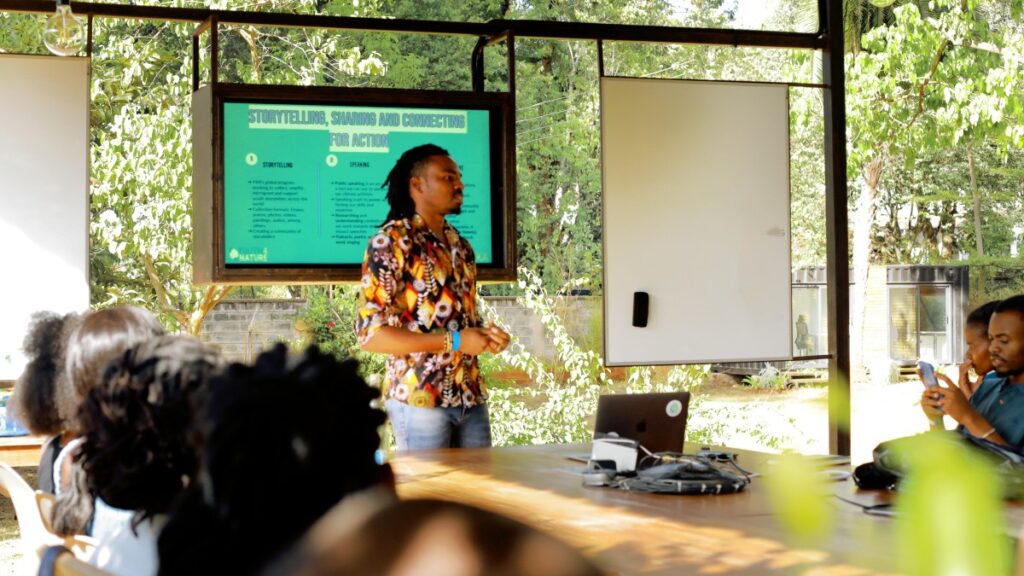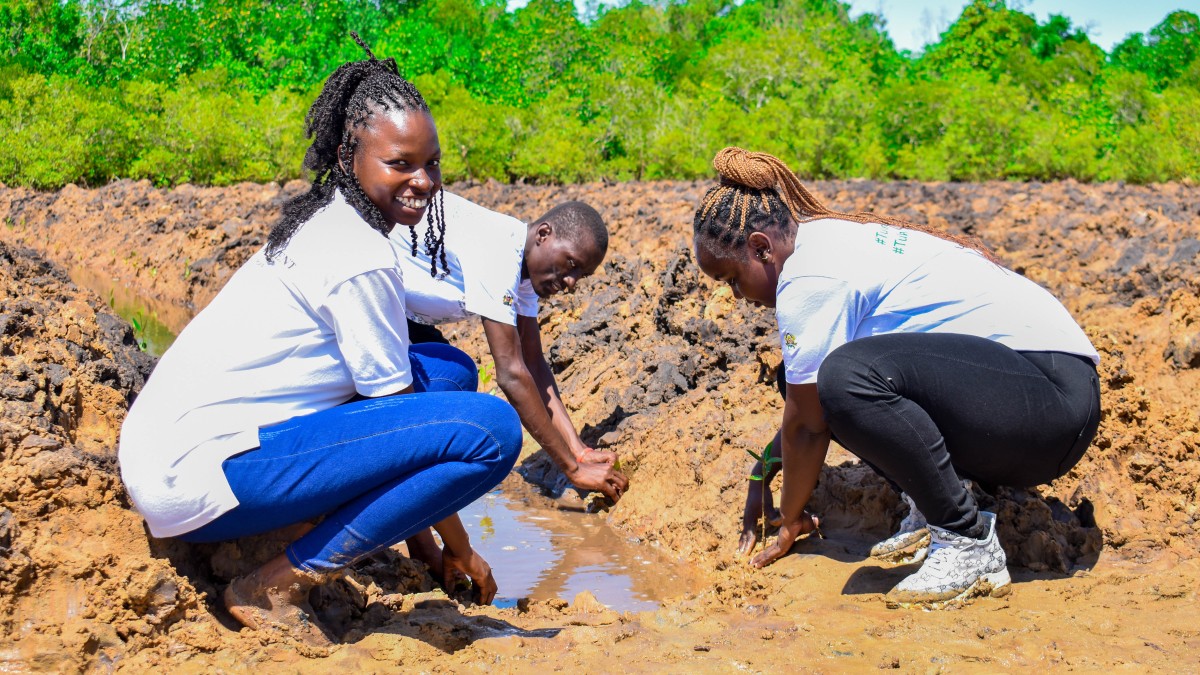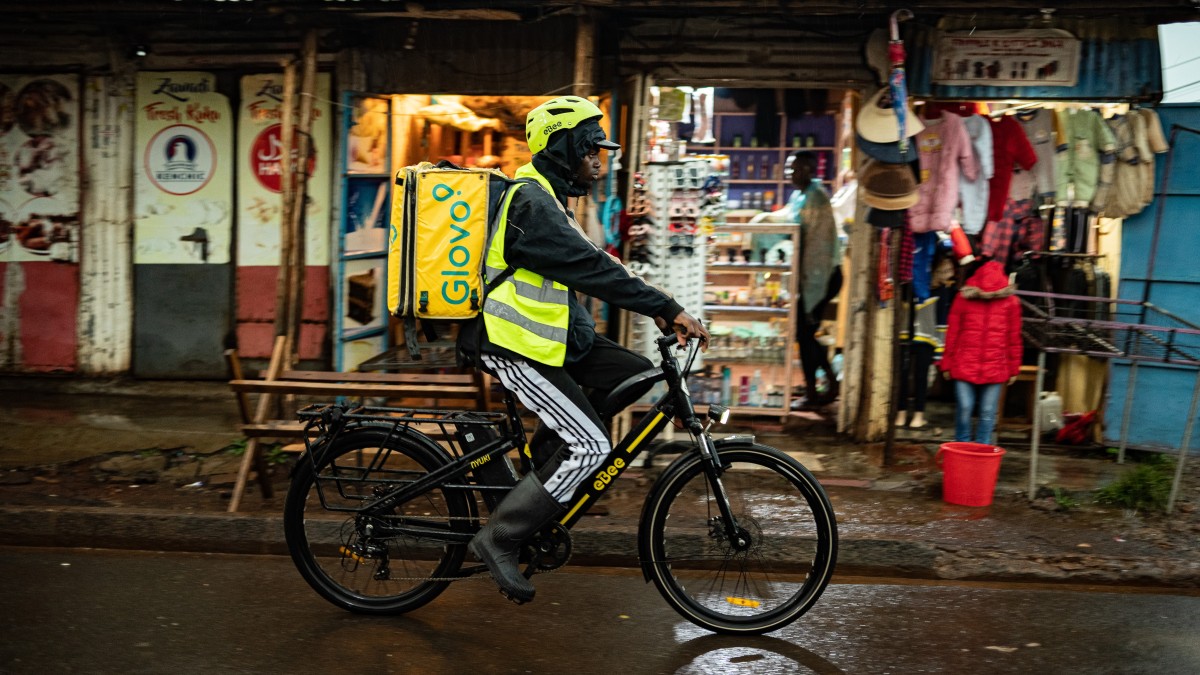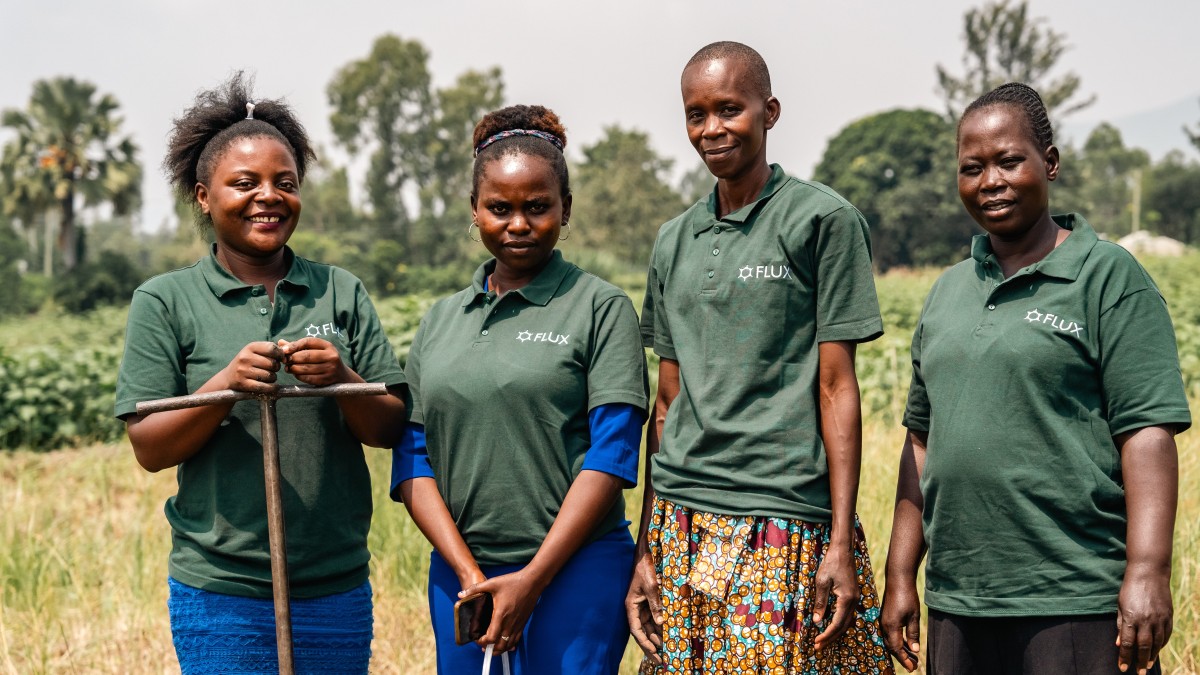

Across Africa, the climate movement has shown how projects rooted in local communities can scale up to influence government policy and inspire broader change. Community-led initiatives are proving adaptable and resilient enough to grow into national programmes and inform global debates.
Yet these projects often need support to scale and thrive. That’s where organisations like Official Earthshot Prize Nominator Nairobi Climate Network are vital, empowering local actors and connecting them to decision‑makers and platforms that help amplify their impact.
What began as a small group of climate professionals casually meeting to share insights, Nairobi Climate Network has since grown into a first-of-its-kind hub connecting climate leaders both new and established from across Kenya’s environmental community. The organisation now provides The Earthshot Prize with valuable insights into this ecosystem and its leaders through its role as an Official Nominator.
Today, Nairobi Climate Network (NCN) have over 2,000 members, 51% of whom are women, representing more than 1,000 organisations, ensuring community voices and perspectives are effectively considered in wider decision-making. As NCN has continued to grow, its success has already spurred demand for similar communities in multiple cities across Africa. The network has now evolved into The Climate Network (TCN), with plans to replicate its model across the continent. This expansion will allow NCN to scale its impact by connecting and coordinating climate professionals beyond Nairobi, beginning with newly established chapters in Tanzania, Uganda and South Africa.
The vision of TCN is to create hyper-local forums for climate professionals to engage within their own chapters, while simultaneously unifying and amplifying their efforts across the continent. By linking these communities, TCN aims to accelerate collaboration, share learning, and build a stronger, more coordinated climate ecosystem across Africa.
Among this membership are organisations working in very different contexts, each bringing a unique approach to tackling climate challenges. From Ceriops restoring coastlines to eBee‘s e-mobility opportunities and Flux Farmers‘ soil health solution, their members illustrate the range of impact climate solutions can have at both a local and national level.

Ceriops works with local communities in Kenya to restore mangroves and build sustainable livelihoods.
In Kenya’s Gazi Bay, community-based organisation Ceriops are restoring degraded mangrove ecosystems while helping communities build sustainable livelihoods.
Over the past four years, they have engaged 3,000 households in activities like nursery management, seedling planting, and ecosystem monitoring. By working together with community-based organisations, Ceriops strengthens local skills and builds ownership of restored ecosystems.
Their “Adopt-a-Site” programme, where community groups manage specific mangrove areas helps to deepen local expertise and make sure the areas remain protected.
The forests are regenerating, and the community members are taking pride in being part of the restoration effort. It’s not just about planting trees; it’s about rekindling a deep connection with nature that many thought was lost.

eBee’s electric bikes power green jobs and cleaner transport across East Africa.
Founded in late 2021, eBee is changing how people move around.
Now operating across Kenya, Uganda and Rwanda, eBee offer electric bicycles for sale and rental to both individuals and businesses. They also run a fleet of last‑mile delivery riders, creating green jobs for women and youth while cutting transport emissions.
In the past year, 300 riders in Nairobi have been trained and employed through the programme, gaining skills and career opportunities in a rapidly growing sector.
Since I joined eBee I have been able to move out of home and get a place for myself. I now live alone and pay my own rent – this is something that has been a dream for a long time. Especially as someone that has come from a family that is rural and I have often depended on support from my family. The opportunity to provide for myself has been transformative.

Flux Farmers help smallholders in western Kenya improve harvests, soils, and jobs through regenerative farming.
In rural areas, Flux Farmers works with smallholder farmers to adopt regenerative practices.
By applying a natural mineral additive to their land that helps store carbon and improve soil health, Flux Farmers members are not only enjoying bigger yields and greater food security, they’re also delivering climate benefits.
Their pilot programme in Bungoma County, western Kenya boosted maize yields by 42%, giving smallholder farmers an average additional income of $222 per hectare. What’s more, for every 50 farmers involved, five new jobs were created, proving the potential to help entire communities thrive.
If Flux Farmers can support more people, they can help many more families have more income and more food. As once you have food, supporting your children becomes easy.
By building a strong community, Nairobi Climate Network has created spaces for collaboration and shared learning that help climate solutions scale. One example being their contribution to the development of Kenya’s carbon market regulations, launching the Carbon Markets Association of Kenya that helps ensure carbon‑credit projects bring tangible benefits for local people.
Looking ahead, they have a number of initiatives in the pipeline. These include strengthening its regional network chapters in Eastern and Southern Africa, continuing to amplify African climate voices across regional and global platforms; and convening key dialogues on carbon markets and climate policy. Additionally, NCN will continue to shape climate policy, lead industry conversations, and serve as a vital connector for climate professionals across Africa and beyond.
As our recent Shared Prosperity report underlined, the fastest and most effective way to repair the planet is one that creates jobs, promotes justice, and drives economic inclusion.
Nairobi Climate Network’s work so far shows that when community‑led climate action is properly supported, it can grow into something that shapes a sustainable future for all.